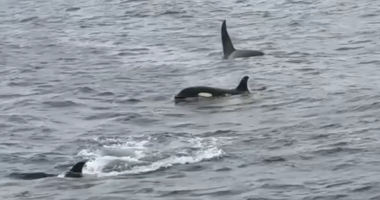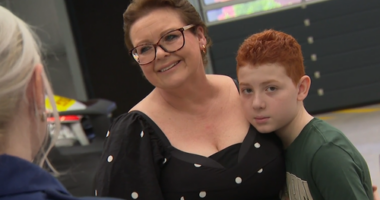Share this @internewscast.com
There is a renewed effort to prohibit a popular plant available at nurseries and Bunnings Warehouse, spurred by new research indicating the flower presents “a far greater threat” to farms and native landscapes than previously understood.
The La Trobe University study has revealed that Gazania daisies can thrive in nearly any Australian environment, with the ability “to spread much further and more destructively than expected.”
The vividly colored flowers, originating from South Africa and available in nurseries across Australia, have been identified as an environmental weed.

Invasive Species Council advocacy manager Imogen Ebsworth said Gazanias were a “perfect example” of an escaped plant that “needs to be banned from sale”.
“Gazanias are not only overrunning native grasslands, coastlines and roadsides, they are moving into grain production areas, choking out crops and costing farmers,” Ebsworth said.
“They are already banned in South Australia but it’s clear we need them pulled nationally.

Other gazania species are also a threat. (Invasive Species Council)
“I urge the nursery industry to act on this new evidence and stop selling it.”
Ebsworth said escaped garden plants were the primary source of new weeds in Australia and “self-regulation has failed” to date.
“An incredible three-quarters of all listed weeds started out as ornamentals,” she said.
“That’s not a Bunnings problem or a rogue nursery problem, it’s a regulatory failure.
“We are relying on everyday Australians to either have a botany degree or realise they need to research legally sold plants to find out if they are a weed.”
According to the study, published in journal Frontiers in Agronomy, escaped ornamental plants make up more than 70 per cent of Australia’s environmental weeds.
It is estimated weeds are costing Australia over $5 billion a year in agricultural and environmental damage.

These beloved household plants are actually weeds
Bunnings Warehouse director of merchandise Cam Rist said the business closely followed advice from authorities.
“Like many nurseries and retailers, we sell a wide range of locally-sourced plants across our stores and we work hard to create an assortment that caters to customer preferences and demand,” Rist said.
“As always, we closely follow all relevant local biosecurity regulations and the advice of regulators about the plants we sell.”
Gazania are sold through nurseries and plant retailers in various regions across Australia, where the plants are legal to sell.
Each state and territory have their own list of declared weeds, laws and regulations for invasive weeds.
Bunnings confirmed the plants its stores sell across Australian stores differ depending on where they are sold and their declaration status.
The store advised shoppers to read the information on the plant label before deciding whether it’s right for them and their garden.
Bunnings confirmed it would continue to closely monitor for any changes by government and regulators in the declaration of invasive weeds and update its plant offering accordingly.













